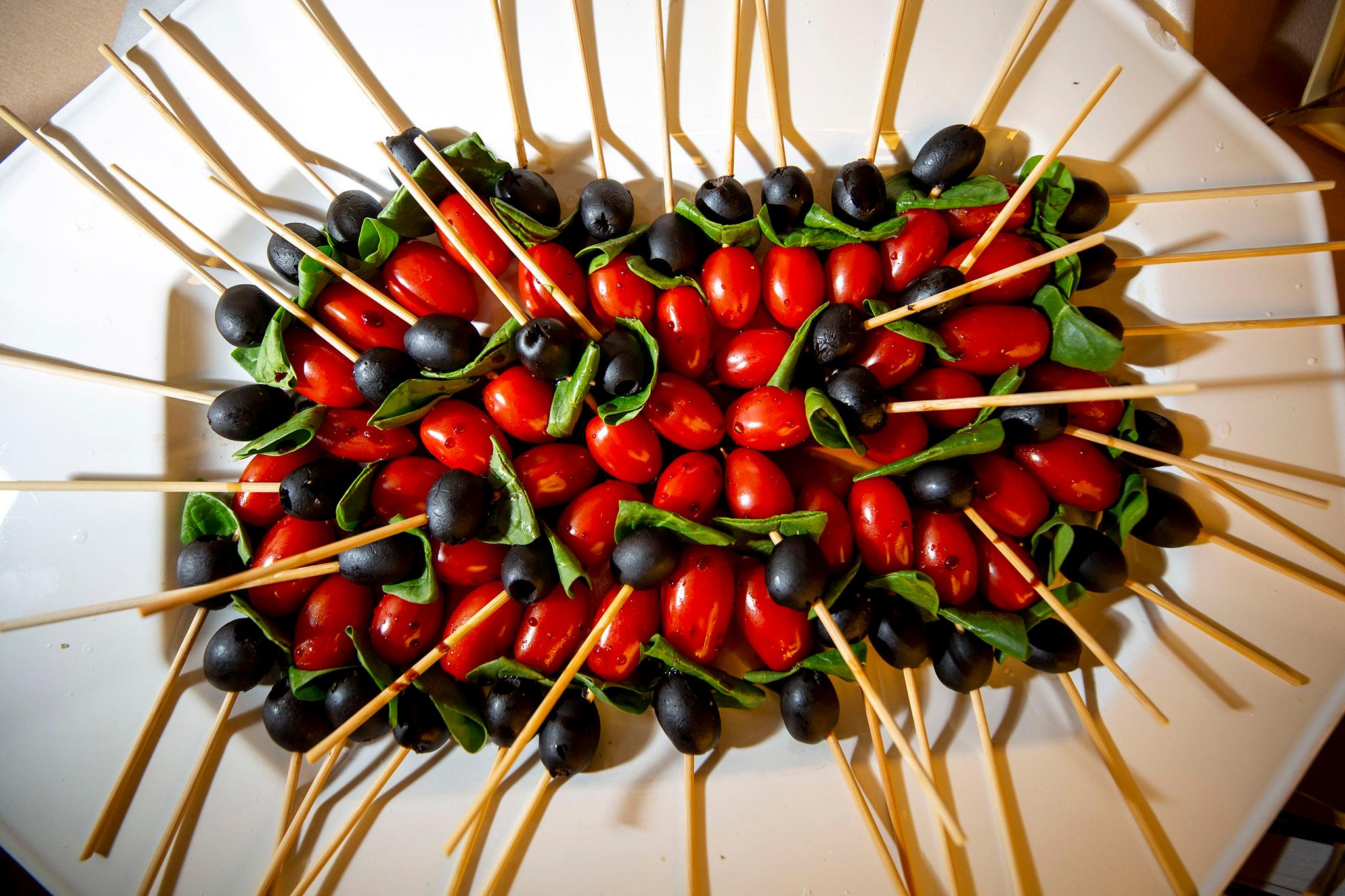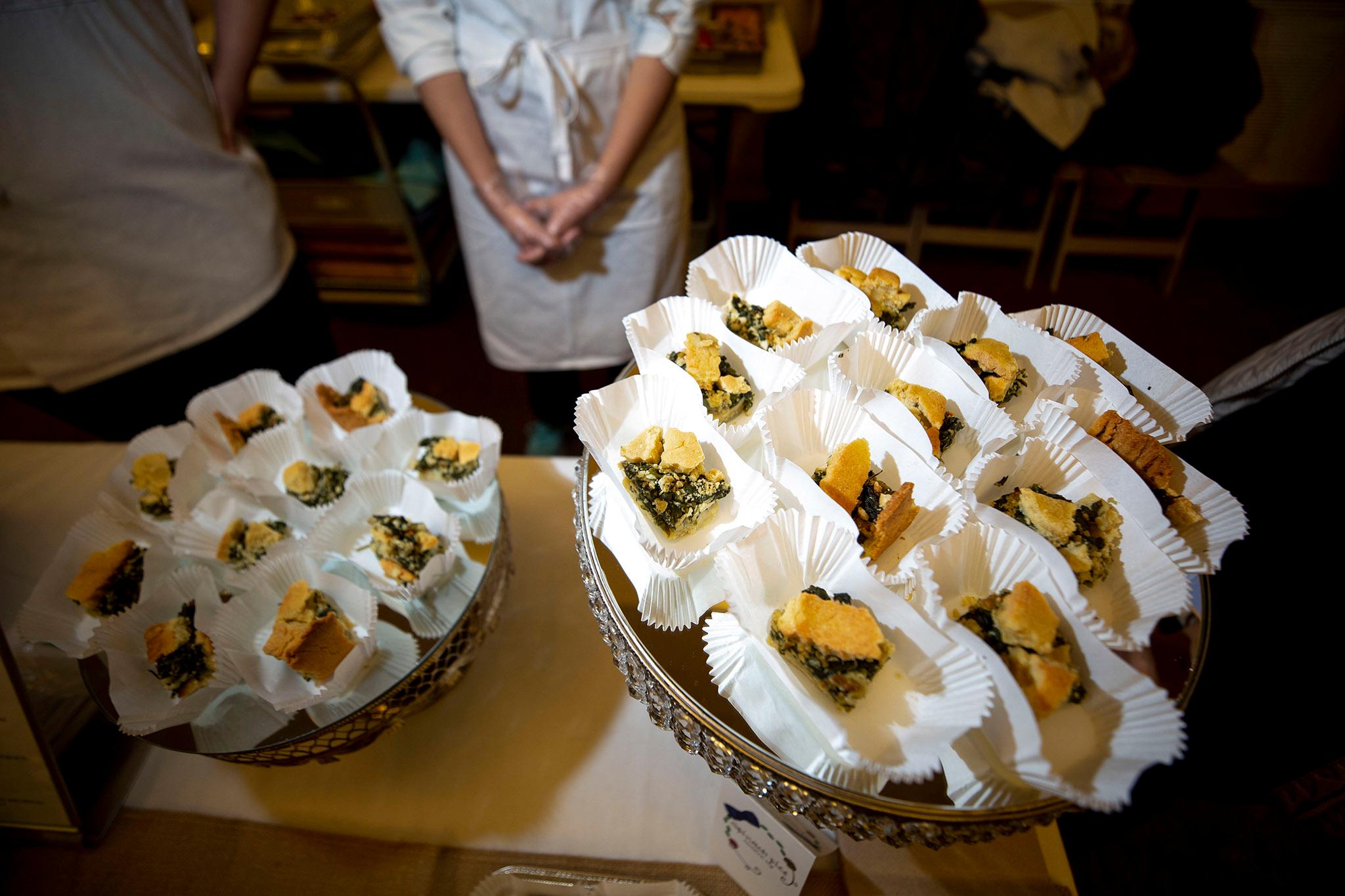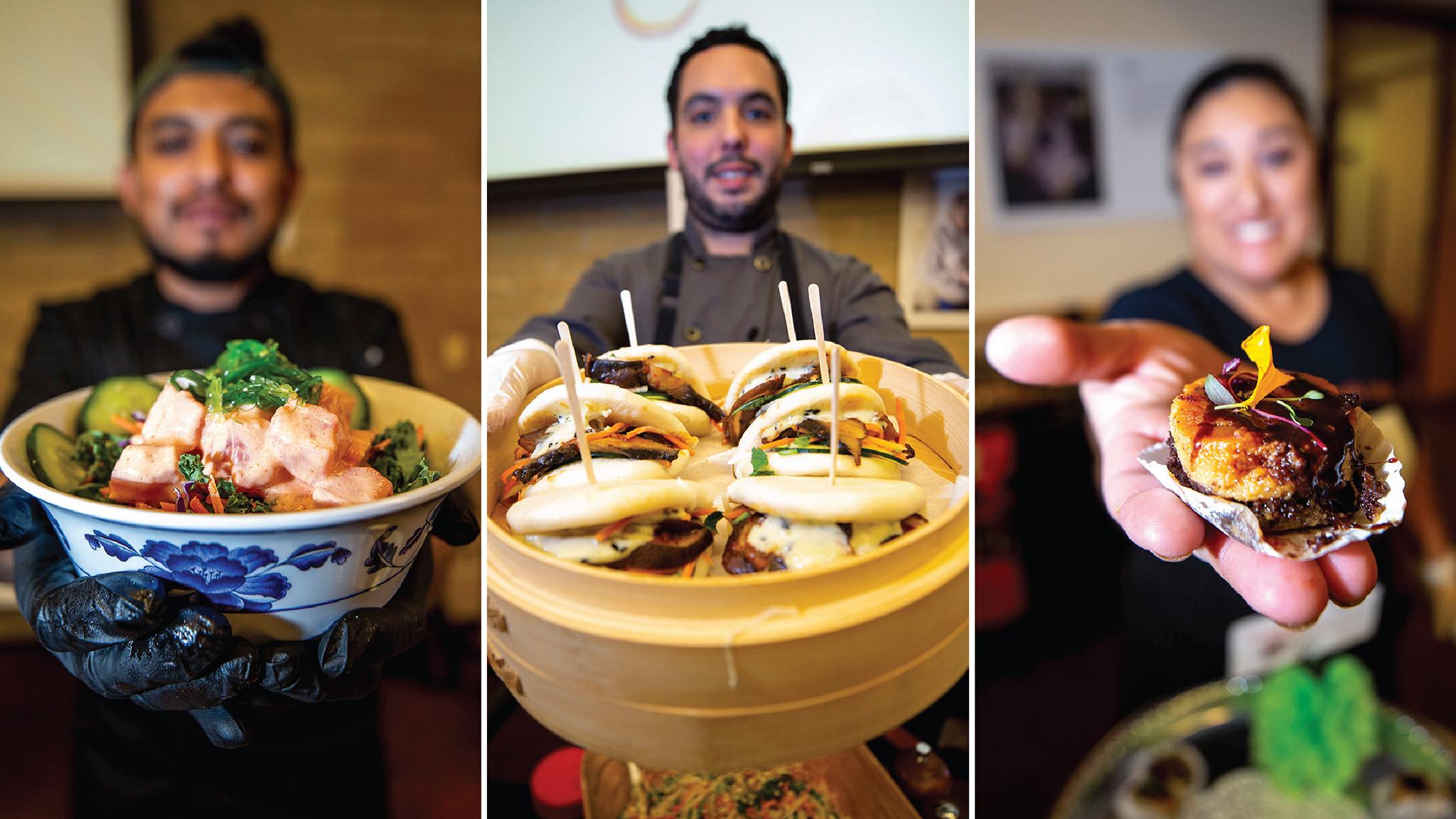Caterer Elena Martinez knew it would be hard to make the numbers work for groups of fewer than 20. But as a new businesswoman, she didn't want to pass up an opportunity.
So she devised what she calls a buffet in a box: a container of tacos and all the fixings that she can drop off for an office lunch for six or seven people. It takes her little time to prepare and involves no set-up, helping her make a profit on the $60 box.
That's the kind of entrepreneurial thinking Yessica Holguin, director of Denver's Center for Community Wealth Building, is trying to foster with a network of food companies owned by women and minorities that includes Martinez's E Hijole Tacos and Catering. Tuesday, E Hijole, which also has a taco cart, was among 10 caterers that Holguin's nonprofit brought to the University of Denver so that university staff could taste their cooking and consider hiring them for events.
"Everything we do is an experiment," Holguin said. "The old system hasn't worked for our communities. We need to figure out what works."


The first experiment was just over a year ago when Holguin organized a similar tasting event at the University of Colorado Denver. It was at that event that Martinez realized she could cater to the kind of small faculty meetings that might otherwise order sandwiches from Panera. Martinez said she has catered a few CU Denver events as a result of that first tasting.
"It was a great opportunity to know that I could reach another audience," Martinez said.
Holguin said she saw at CU Denver that potential clients were filling their plates at the first few tables set up by her caterers and then feeling too full to taste anything else. At DU, 120 people -- twice as many as had participated at CU Denver -- from several university departments were divided into small groups, each directed to start at a different table. The caterers prepared bite-sized portions of tacos, barbecue, bao buns, sweet potato pie and more that they could distribute in the five minutes each group of tasters spent at a table before moving onto the next.
An MC explained the drill just before noon on Tuesday. Then, her mouth full, she announced: "Let the tasting begin!"
Diana Rivero called it "speed tasting." It was her first event with the Center for Community Wealth Building, an organization whose strategies include connecting small, minority-owned businesses with institutions with economic heft -- universities, hospitals, local governments. Such institutions often fall back on working with corporations to provide goods and services, overlooking local businesses that could do the job if they could get a chance. Many such businesses are owned by longtime Latino and African-American Denverites who have long been marginalized in the city and are at risk of being displaced because they have been left out of the recent economic boom.
Rivero's parents have owned Rivero Western Wear at 353 S. Sheridan Blvd. in Lakewood for 22 years. She said she learned from them about running a business.
Two years ago, Rivero baked treats for the sixth birthday party of the daughter of a friend. The little girl couldn't tolerate rice, dairy, eggs or gluten. The success of that party and other events for friends and family for which she baked convinced Rivero to start Just Indulgence, which specializes in sweet and savory vegan and gluten-free pastries.
Rivero said she is largely self-taught, though she also has studied baking at Emily Griffith Technical College. Classes at Mi Casa Resource Center also helped Rivero prepare to open her catering business. Mi Casa has connected others to Community Wealth Building, which provides marketing and business support to businesses.


Leslie Brunelli, DU's senior vice chancellor for business and financial affairs, said as the tasting event began that it was in line with commitments her institution made when it recently launched new building projects. The pledge was to include minority and women-owned businesses and emerging and small businesses. Overall, Brunelli said, those targeted business got 27 percent, or about $30 million, of the $113 million spent to build a new dormitory and two other major buildings.
Brunelli said the university spends about $500,000 a year on catering.
"It is significant," said Holguin of the Center for Community Wealth Building, "Even if we can change 25 percent of the procurement to local businesses, that's significant for the business owners."
Trish Becker, director of community engagement at DU's Graduate School of Social Work, said her department's spending on catering usually goes to Sodexo, an international company that is the main food service provider on campus. There's room for others. Becker said that Sodexo can get so busy around graduation time that "it can be hard to snag them."
Becker was part of a campus committee that helped prepare Tuesday's tasting, including getting all the catering companies that participated registered in the school's vendor system. That will make paying them easier. The Rocky Mountain Microfinance Institute helped support the caterers.
In a note to the tasters, the DU planning committee wrote that the university was committed "to finding ways that we can work with local companies owned by women and people of color. Why? Because we believe that we can meet our needs as an institution and support and strengthen local businesses."
"It is one small step we can take to help close the well-documented racial and wealth gap in our city," the note continued.

Ruben Valentin trained at the Culinary Institute of America and worked in New York restaurants before coming to Denver in 2008, where he worked in kitchens before starting Alma Kitchen and Catering. Valentin has also mentored aspiring chefs at Mi Casa.
Valentin took part in the CU Denver tasting, thinking it would lead to two or three events for 20 or 30 people each. Instead, he's been working two or three events a month at CU Denver, some for as many as 150 people. And his CU contacts have recommended him to friends off campus.
"It was amazing," Valentin said, pausing from offering samples of chicken satay on beds of quinoa salad to the tasters at DU.
"I really love Asian food," said Valentin, whose family is from Puerto Rico. "I worked at a Japanese restaurant in New York."
Collin Shepherd, who organizes alumni and other events on campus, peppered Valentin with questions. How many diners could he handle? Could he do plated as well as buffet events?
Shepherd said he was planning a May event for students, a group that he said was always looking for something unique to eat.
"Now I know who to go to," he said.













